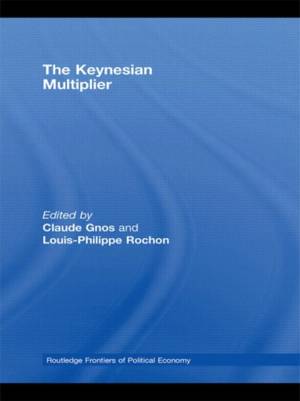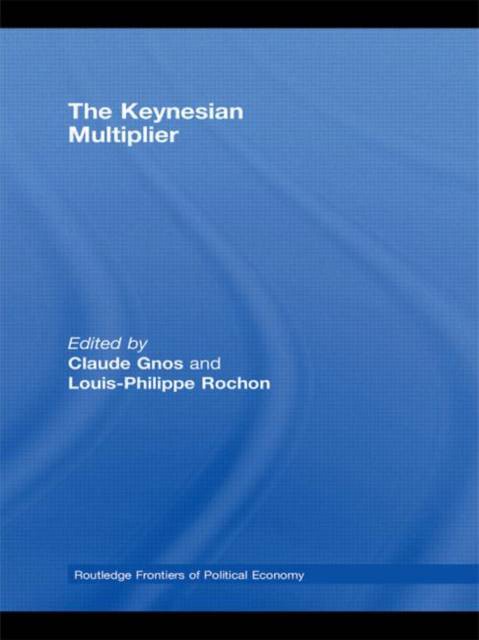
- Retrait gratuit dans votre magasin Club
- 7.000.000 titres dans notre catalogue
- Payer en toute sécurité
- Toujours un magasin près de chez vous
- Retrait gratuit dans votre magasin Club
- 7.000.0000 titres dans notre catalogue
- Payer en toute sécurité
- Toujours un magasin près de chez vous
The Keynesian Multiplier
Description
The multiplier is a central concept in Keynesian and post-Keynesian economics. It is largely what justifies activist full-employment fiscal policy: an increase in fiscal expenditures contributing to multiple rounds of spending, thereby financing itself. Yet, while a copingstone of post-Keynesian theory, it is not universally accepted by all post-Keynesians, for reasons vastly different than the mainstream.
This book explores both the pros and cons of the multiplier from a strictly post-Keynesian - and Kaleckian - approach. Anchored within the tradition of endogenous money, this book offers a lively discussion from a number of well-known post-Keynesians from a variety of perspectives: history of thought, theory and economic policy. The book starts by analysing the historical foundations of the Keynesian Multiplier and it's treatment throughout the history of economic thought. Moving through a critical debate about the limits of the multiplier, the contributions finish by offering cutting edge new views on this fascinating concept.
.
Spécifications
Parties prenantes
- Editeur:
Contenu
- Nombre de pages :
- 206
- Langue:
- Anglais
- Collection :
Caractéristiques
- EAN:
- 9780415569569
- Date de parution :
- 24-11-09
- Format:
- Livre broché
- Format numérique:
- Trade paperback (VS)
- Dimensions :
- 156 mm x 234 mm
- Poids :
- 317 g

Les avis
Nous publions uniquement les avis qui respectent les conditions requises. Consultez nos conditions pour les avis.





